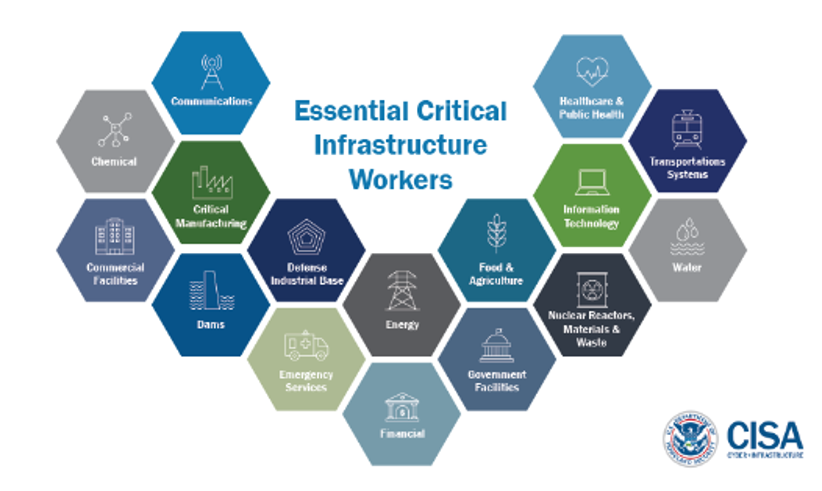Alert 04.01.20
Virginia Ordered to Stay at Home Until June 10th
Governor Northam issues a statewide stay-at-home order and keeps nonessential businesses closed until June 10, 2020.
Alert
Alert
By Shani Rivaux
04.03.20
On April 1, 2020, Governor Ron DeSantis mandated the closure of all nonessential businesses by Executive Order 20-91, effective April 3, 2020, at 12:01 am and expiring on April 30, 2020, unless extended by subsequent order. The order also requires anyone in Florida to limit their movement and personal interactions outside of the home to “essential services” and “essential activities.” The Order also mandates that senior citizens and Floridians with significant underlying medical conditions (chronic lung disease, moderate to severe asthma, serious heart conditions, immunocompromised status, cancer, diabetes, severe obesity, renal failure, and liver disease) “shall stay at home and take all measures to limit the risk of exposure to COVID-19.”
This Executive Order 20-91 supersedes all conflicting local government stay home orders, although local governments can impose further restrictions as they deem appropriate. The Governor enters this Executive Order on the heels of executive orders mandating 14-day self-quarantines for all individuals arriving in Florida from Connecticut, New Jersey, New York and Louisiana.
Essential Businesses May Remain Open
The Executive Order follows the U.S. Department of Homeland Security Guidance on the Essential Critical Infrastructure Workforce, v.2 (March 28, 2020) when it comes to which businesses and workers are considered “essential.” All businesses, organizations and facilities that operate in critical infrastructure sectors as identified in the Guidance are not required to close. The Executive Order also follows the definitions of “essential services” in Miami-Dade County Emergency Order 07-20 and its amendments. Order 07-20 provides an enumerated list of “essential services.”
Which Businesses Are Essential?
The Guidance outlines a non-exhaustive list of 16 sectors considered essential, including:
Chemical Sector, Commercial Facilities Sector, Communications Sector, Critical Manufacturing Sector, Dams Sector, Defense Industrial Base Sector, Emergency Services Sector, Energy Sector, Financial Services Sector, Food and Agriculture Sector, Government Facilities Sector, Healthcare and Public Health Sector, Information Technology Sector, Nuclear Reactors, Materials, and Waste Sector, Transportation Systems Sector, Water and Wastewater Systems Sector:

The Guidance further recommends that for the Essential Services:
For more information on the federal critical infrastructure sectors, please see the U.S. Department of Homeland Security’s Cybersecurity and Infrastructure Security website.
Emergency Order 07-20 and its amendments also specifically allows the following to remain open:
It should be noted that while hotels, motels and other commercial lodging establishments are considered “essential services” pursuant to Emergency Order 07-20, all vacation rentals are prohibited from making new reservations or accepting new guests by Executive Order 20-87. The Order specifically excludes hotels, motels and resorts. Violations or attempted violations of Executive Order 20-87 are considered second-degree misdemeanors and may result in the revocation of rental licenses.
With the approval of the State Coordinating Officer and State Health Officer, additional activities could be added this list. Whenever possible, people are encouraged to work from home. Updated lists of “essential services” will be available at www.floridadisaster.org and www.floridahealth.gov.
Essential Activities May Remain Open
The Executive Order distinguishes between essential “services” and “activities.” The enumerated essential activities that may remain open include:
This list may be amended and the State Coordinating Officer is required to maintain an online list of essential activities. Social gatherings over greater than ten people remains prohibited.
The statewide Executive Order remains in place until April 30, 2020 unless otherwise extended.
Pillsbury’s experienced crisis management professionals are closely monitoring the global threat of COVID-19, drawing on the firm’s capabilities in supply chain management, insurance law, cybersecurity, employment law, corporate law and other areas to provide critical guidance to clients in an urgent and quickly evolving situation. For more thought leadership on this rapidly developing topic, please visit our COVID-19 (Coronavirus) Resource Center.